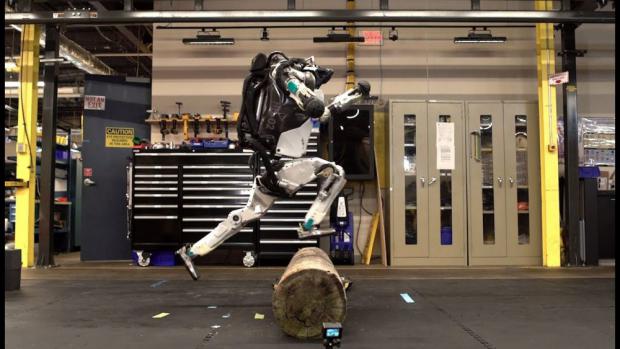
Breaking News
 Windows 10 is DEAD in 2025? -- Here's How I Run It SAFELY Forever (No Updates)
Windows 10 is DEAD in 2025? -- Here's How I Run It SAFELY Forever (No Updates)
 GENIUS ACT TRIGGERED: The Biggest BANK RUN in History is COMING – Prepare NOW
GENIUS ACT TRIGGERED: The Biggest BANK RUN in History is COMING – Prepare NOW
 European Billionaires Funneled $2 Billion into NGO Network to Fund Anti-Trump Protest Machine
European Billionaires Funneled $2 Billion into NGO Network to Fund Anti-Trump Protest Machine
 Japan Confirms Over 600,000 Citizens Killed by COVID mRNA 'Vaccines'
Japan Confirms Over 600,000 Citizens Killed by COVID mRNA 'Vaccines'
Top Tech News
 HUGE 32kWh LiFePO4 DIY Battery w/ 628Ah Cells! 90 Minute Build
HUGE 32kWh LiFePO4 DIY Battery w/ 628Ah Cells! 90 Minute Build
 What Has Bitcoin Become 17 Years After Satoshi Nakamoto Published The Whitepaper?
What Has Bitcoin Become 17 Years After Satoshi Nakamoto Published The Whitepaper?
 Japan just injected artificial blood into a human. No blood type needed. No refrigeration.
Japan just injected artificial blood into a human. No blood type needed. No refrigeration.
 The 6 Best LLM Tools To Run Models Locally
The 6 Best LLM Tools To Run Models Locally
 Testing My First Sodium-Ion Solar Battery
Testing My First Sodium-Ion Solar Battery
 A man once paralyzed from the waist down now stands on his own, not with machines or wires,...
A man once paralyzed from the waist down now stands on his own, not with machines or wires,...
 Review: Thumb-sized thermal camera turns your phone into a smart tool
Review: Thumb-sized thermal camera turns your phone into a smart tool
 Army To Bring Nuclear Microreactors To Its Bases By 2028
Army To Bring Nuclear Microreactors To Its Bases By 2028
 Nissan Says It's On Track For Solid-State Batteries That Double EV Range By 2028
Nissan Says It's On Track For Solid-State Batteries That Double EV Range By 2028
This video of Boston Dynamics' creepy humanoid robot doing parkour ...

Robots have always had certain advantages over humans. They're typically made of more durable materials than the soft tissue covering human bodies and since they can be repaired in the event of damage, they can basically "live" forever. But robots are usually clunky and clumsy, and humans have always had a huge advantage in terms of dexterity.
Thanks to the mad scientists at Boston Dynamics, that appears to be changing. The humanoid Atlas robot, which has already demonstrated incredibly impressive human-like abilities, just keeps getting better and better, and a new video by the company shows that its fluidity of movement has now easily surpassed your own (and mine).
Atlas has slowly but surely been learning a lot of new skills over the past few years. It's graduated from holding boxes and awkwardly walking to sprinting over obstacles and navigating all manner of difficult terrain.
This latest demonstration is an evolution of those skills, with the robot showcasing its ability to tumble, spin in the air, and even do a respectable handstand. It's essentially a full-fledged gymnastics routine being performed by a robot. Whether that's awesome or scary depends on your point of view.

 Carbon based computers that run on iron
Carbon based computers that run on iron

